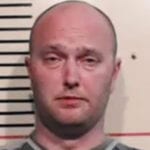 History
History  History
History  Health
Health 10 Everyday Activities That Secretly Alter Consciousness
 History
History Top 10 Historical Disasters Caused by Someone Calling in Sick
 Animals
Animals 10 New Shark Secrets That Recently Dropped
 Movies and TV
Movies and TV 10 Forgotten Realities of Early Live Television Broadcasts
 Technology
Technology 10 Stopgap Technologies That Became Industry Standards
 Weird Stuff
Weird Stuff 10 Wild Facts About Taxidermy That You Probably Didn’t Know
 Travel
Travel 10 Beautiful Travel Destinations (That Will Kill You)
 Miscellaneous
Miscellaneous 10 Modern Marriage Rituals Born from Corporate Branding
 Weird Stuff
Weird Stuff Ten Bizarre Visions of 2026 from Fiction
 History
History 10 “Modern” Problems with Surprising Historical Analogs
 Health
Health 10 Everyday Activities That Secretly Alter Consciousness
 History
History Top 10 Historical Disasters Caused by Someone Calling in Sick
Who's Behind Listverse?

Jamie Frater
Head Editor
Jamie founded Listverse due to an insatiable desire to share fascinating, obscure, and bizarre facts. He has been a guest speaker on numerous national radio and television stations and is a five time published author.
More About Us Animals
Animals 10 New Shark Secrets That Recently Dropped
 Movies and TV
Movies and TV 10 Forgotten Realities of Early Live Television Broadcasts
 Technology
Technology 10 Stopgap Technologies That Became Industry Standards
 Weird Stuff
Weird Stuff 10 Wild Facts About Taxidermy That You Probably Didn’t Know
 Travel
Travel 10 Beautiful Travel Destinations (That Will Kill You)
 Miscellaneous
Miscellaneous 10 Modern Marriage Rituals Born from Corporate Branding
 Weird Stuff
Weird Stuff Ten Bizarre Visions of 2026 from Fiction
Top 10 Evil Cops
Police officers are tasked with protecting us and helping out when life doesn’t go to plan. They are some of the most trusted men in our society and a great deal of privilege is afforded them. This makes it even worse when the men (and women—as you will see further down the list) that we look to for our protection turn on society and commit heinous acts of violence. Sadly, this has happened often enough that it was easy to find ten for this list, and a further ten for a follow-up.
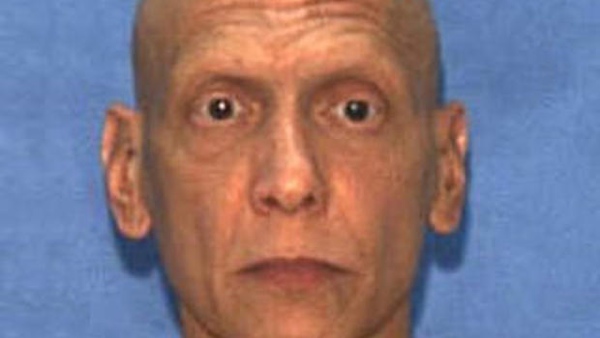
Manuel Pardo had an excellent police record. He graduated at the top of his academy class. He was a decorated policeman who saved a two year old’s life and committed other acts of valor. On the other hand, Pardo was fired from Florida Highway Patrol for falsifying traffic tickets in 1979. Shortly after, he was hired by the police department in Sweetwater, a small city in Miami-Dade County. In 1985 he was fired again for testifying in a fellow officer’s drug trafficking trial in which he lied under oath claiming that he and the other officer were international undercover agents.
And then things went horribly wrong. Pardo became obsessed with Hitler and over a three month period in 1986, Pardo murdered nine people. He confessed to killing six men because of their association with drugs. He felt he was doing the world a favor and—as he was no longer an employed officer—he resorted to vigilantism. His other three victims were women, though he claimed he was innocent on those counts. Pardo was executed by lethal injection on December 11, 2012, at Florida State Prison.
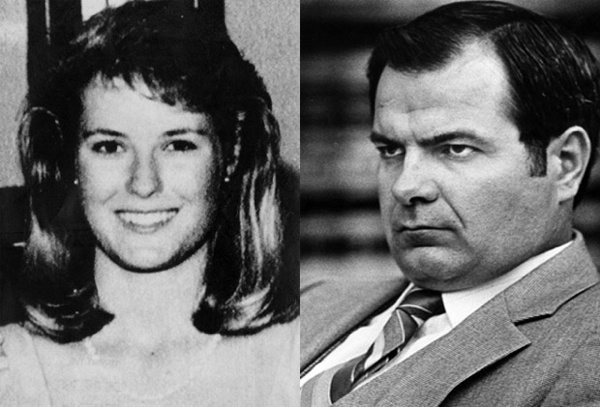
Peyer was a California Highway Patrol officer who had a habit of directing young women onto an unfinished off-ramp to try to get dates. On December 27, 1986, Peyer pulled over twenty year old Cara Knott. It is thought that Knott rejected his advances. Peyer beat her with his flashlight and then strangled her with a rope. After he murdered her, he threw her body off an abandoned bridge.
Two days later, a local television station was covering Knott’s murder when a reporter interviewed Peyer about how to stay safe on the road from predators. During the interview Peyer had visible scratches on his face. After the segment aired, a number of women called in to complain about Peyer’s inappropriate advances.
The police did an investigation and found a plethora of evidence against Peyer including the murder weapon in his car. Witnesses also came forward who saw Knott being pulled over by a CHP car, and fibers under Knott’s fingernails were similar to those found on Peyer’s body. Going against the tradition of the blue wall of silence, other officers testified against Knott. He was found guilty and sentenced to twenty-five years to life in 1988. He has since been denied parole three times.
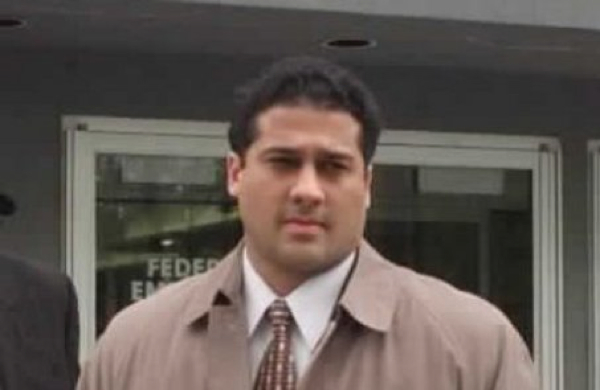
On August 9, 1997, Volpe and other officers responded to a fight at a nightclub in East Flatbush in Brooklyn. Volpe arrested thirty year old Abner Louima—a Haitian immigrant—after Louima allegedly punched him in the stomach. On the way to the police station Louima was beaten with fists, nightsticks, and police radios.
Once in the police station, the abuse continued. Volpe kicked Louima in the groin and then squeezed his testicles. In the washroom of the station, another officer held Louima down while Volpe sodomized him with a handle of a plunger before ramming it in his mouth so hard that it broke his teeth. Volpe then walked around with the bloody, fecal covered plunger claiming he “took a man down.”
Louima was taken to the hospital and the police said his injuries were from abnormal homosexual sex. The hospital officials didn’t believe the story and contacted Internal Affairs. Louima spent two months in the hospital and required three major surgeries. On December 13, 1999, Volpe was sentenced to thirty years in prison without the possibility of parole, a $525 fine and restitution in the amount of $277,495.
Volpe admitted he made a mistake and stated that Louima was not actually the person who punched him.
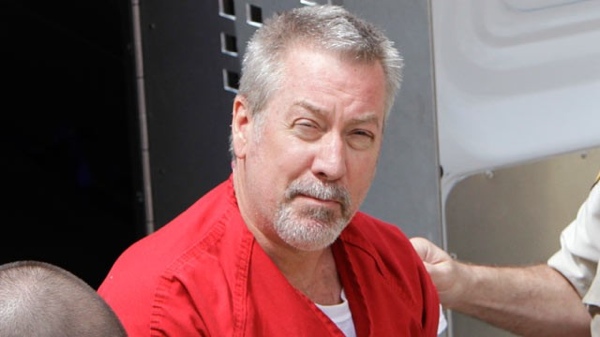
Drew Peterson was accused of spousal abuse by his second wife Victoria Connelly who luckily didn’t die at his hands. During the two years of his third marriage to Kathleen Savio, eighteen calls for domestic disturbances were made. They divorced in 2000 and On March 24, 2001 Kathleen’s dead body was found in a waterless bathtub. She had injuries on her body including a cut on her head. According to the coroner’s jury—which included a police officer friend of Peterson—she died of accidental drowning.
Six months later Peterson married his forth wife, Stacy Ann Cales. Stacy was reported missing by her sister on October 29, 2007. Peterson claimed she ran away with another man and left her car at the airport. Her body was never found. There were reports that Peterson was seen dragging a barrel away from his house the day after Stacy went missing. Petersen’s friend also claimed there were large bins missing from Peterson’s house.
After Stacy disappeared Kathleen Savio’s body was exhumed and her death was ruled a homicide. Petersen was convicted and faces up to sixty years in prison.

In December 1985, John Ruetten broke off his relationship with police officer Stephanie Lazarus and married a critical care nurse named Sherri Rasmussen. On February 24, 1986, Rasmussen was found beaten and shot to death. Her case was initially ruled a robbery gone wrong because her BMW was missing.
While the case sat cold for twenty-four years, Stephanie Lazarus—a Los Angeles Police Department officer—was promoted to the rank of Detective in charge of Art and Forgery. It was only in 2009 during a review of cold cases that Lazarus finally became a suspect in the Rasmussen case. An undercover officer tailed her, eventually collecting a DNA sample. It was compared to the DNA sample taken from a bite found on Rasmussen’s body and it matched.
Lazarus was convicted of first degree murder in May, 2012 and sentenced to 27 years in prison.
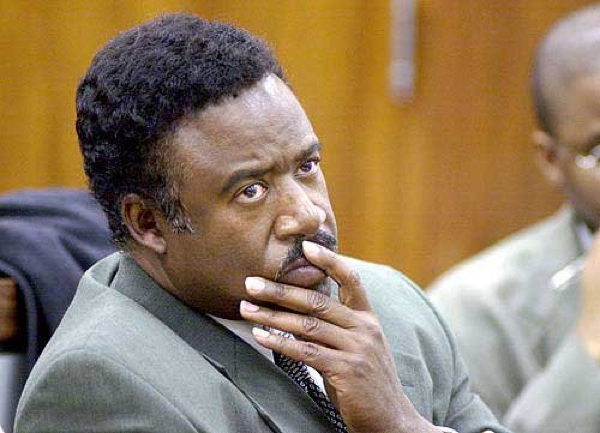
Dorsey was sheriff of DeKalb County, Georgia from 1996 to 2000. During his time as Sheriff there were allegations of corruption. In August 2000, he lost a runoff election to Derwin Brown. Three days before Brown was to take office, he was shot twelve times in front of his house by Patrick Cuffy who worked for Dorsey’s private security force. Dorsey confessed to ordering the hit on Brown. He said he was angry over the election, and stressed out from a failing marriage and a sexual harassment lawsuit. It was also alleged that Brown was assassinated to stop him from looking into the corruption that plagued Dorsey’s office.
On July 10, 2002, Dorsey was sentenced to 23 years for corruption and received a life sentence for Brown’s murder.
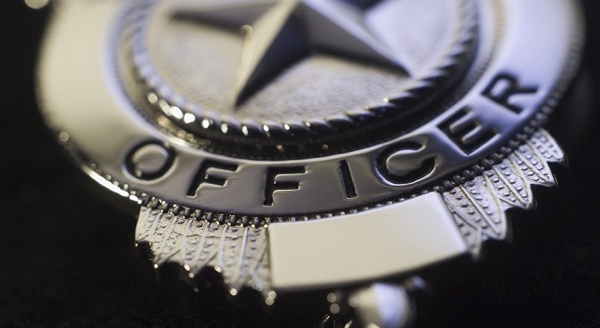
Leasure was a traffic cop in Los Angeles for seventeen years, yet he had millions of dollars in an offshore account and had a dozen corvettes. It turns out, Leasure was actually running a criminal enterprise. He ran a stolen car ring, stole and resold luxury yachts, and organized murder for hire schemes.
He arranged at least three murders and was the driver for two of them. The first was the murder of a seventy-six year old Gilberto Cervantes who was shot returning home from church. Ann Smith was the second victim. Her crime: divorcing one of Leasure’s friends. Leasure had his accomplice—Dennis France—shoot Smith in her mother’s beauty salon whilst staging a fake robbery. Leasure’s third victim, Tony de los Reyes, was also shot during a fake robbery.
Leasure was arrested aboard a stolen yacht outside of Oakland on May 26, 1986. Five years later, Leasure pleaded guilty to two counts of second degree murder and was given a sentence of fifteen years to life.
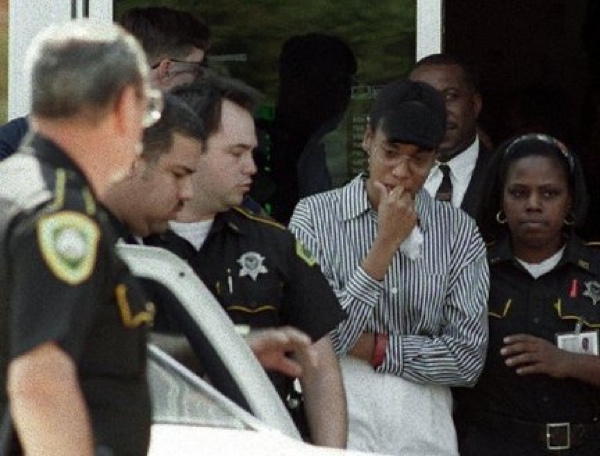
Frank was a member of the New Orleans Police Department. As well as working for the NOPD she also worked security detail at Kim Anh restaurant. At the time, Frank had developed a strange relationship with eighteen year old Roger LaCaze—a drug dealer with a history of violence. She took LaCaze in her patrol car for ride-alongs and introduced him to people as her trainee.
On March 4, 1995, Frank and LaCaze robbed Kim Anh restaurant. Frank fatally shot fellow officer Ronald Williams whose second son was born a week before his death. He and Frank had shared the security duties at the restaurant. She then executed two members of the family who owned the restaurant: seventeen year old Cuong Vu and his twenty-four year old sister, Ha. Frank and LaCaze escaped but Frank returned to the scene of the crime a short time later as a police officer.
Unbeknownst to Frank, witnesses were left alive in the restaurant. They identified her as the shooter. Both Frank and LaCaze were convicted of first degree murder and sentenced to death. This was first time a police officer was convicted of murdering another officer.
A month after their conviction, a body was found buried in Frank’s yard with a bullet through its skull. Her father went missing a year and a half earlier.
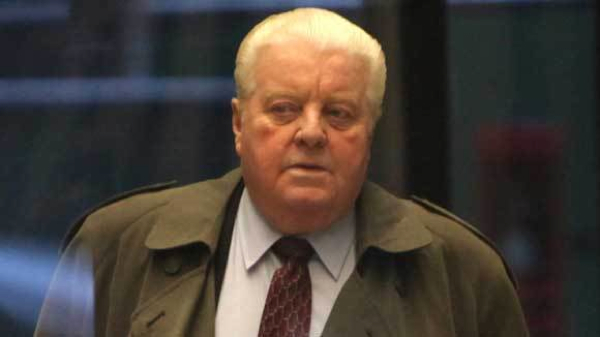
Burge was a detective and was later promoted to Detective Commander in Chicago’s South Side. Starting in 1972 and continuing until he was suspended in 1991 he was plagued by allegations of brutality. Burge and detectives under him—known as the Midnight Crew—were accused of torturing more than 200 suspects.
They were accused of suffocating suspects by putting bags over their head and electrically shocking them. Burge was even accused of making a suspect play Russian roulette with a .44-caliber gun.
One of the worst cases of brutality at the hands of Burge happened in 1982, after two police officers were murdered in Chicago. Andrew Wilson was brought in for questioning during which he was suffocated, his genitals were electrocuted, and he was forced against a hot radiator.
Due to these extreme measures to get confessions, numerous innocent men were imprisoned. Four of these men—waiting on death row—were pardoned outright in 2000 and in 2003 all death row inmates were commuted to life without parole or less with the Burge case being cited as the main reason.
An investigation into Burge and the Midnight Crew began in 2002 and concluded in 2006. By that time, the statute of limitations had run out so authorities could not charge him for his brutal crimes. Instead, he was charged with counts of obstruction of justice and perjury for lying about the torture. He was found guilty on all counts in 2010 and on January 21, 2011, he was sentenced to four and a half years in federal prison.

Schaefer was a teacher who was fired for inappropriate behavior. He became a Patrolman in Martin County, Florida after being turned down for the Priesthood. On July 21, 1972 while on patrol, Schaefer picked up two teenage girls who were hitchhiking. He took them to a secluded area in the woods and tied them to a tree. Schaefer got a call on his radio and he left them tied up, vowing to return. They escaped and went to the closest police station which happened to be Schaefer’s station. When Schaefer returned to where he left the girls he discovered them missing. Realizing they were gone, he called his chief and explained that he had done something stupid. He claimed that he wanted to scare the girls so they wouldn’t hitchhike. The chief didn’t believe his story. He was arrested and charged with false imprisonment and assault.
He posted bail and on September 27, 1972, Schaefer abducted, tortured, and murdered seventeen year old Susan Place and sixteen year old Georgia Jessup. Their bodies were found six months later and because of the similarity to Schaefer’s other crime, police got a warrant for his house. There they found clues linking him to the disappearance of thirty other females including jewelry and even teeth from the victims.
He was convicted of first degree murder in 1973 and given two life sentences. He was stabbed to death in prison by fellow inmate Vincent Rivera on December 3, 1995.
Rob Grimminck is a crime fiction writer. You can follow him on twitter @RobertGrimminck or on Facebook.
